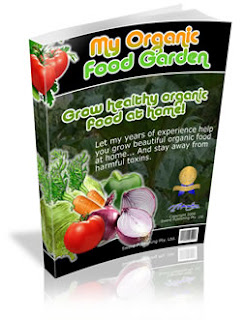Now you are onto the organic farming bandwagon, either convinced by the health and environmental benefits, or convinced by the economics of it (or a combination of both). Now you want to know what are some of the fertilizers you can use as a part of organic farming ? After all, it is not possible any more to use the chemical fertilizers since these are not permitted as a part of organic farming, and go against the principles of using organic additives.
Compost: Compost is an excellent organic fertilizer that provides a rich source of nutrients to the soil. Making compost is not very complicated, the only thing it takes is some attention and time required for converting the organic waste to compost (months usually). It also helps in utilizing waste such as leaves, kitchen waste (except for meat), etc.
Nitrogen: Nitrogen in the soil is provided through the system of plant rotation, where nitrogen enhancing plants (that provide legumes) such as Alfalfa (as another example, potatoes should be grown on soil where sweet corn has been grown, since sweet corn adds to the soil what potato needs).
Livestock manure: Livestock manure is a natural method of adding nutrients into the soil and making it richer, a practice that has been followed since the beginning of farming. It is only in recent times that fertilizers started getting used; however, getting livestock manure as fertilizer for organic farming works fairly well.
Seaweed and kelp: This is an additive that is often ignored, but should be used. For those near sea coasts, this is plentiful, and provides nutrients, including materials that are not found elsewhere.
Compost tea: This additive sounds a bit strange, but is actually rich runoff during the composting process. Make sure that you have provisions to collect it, and use it as another fertilizer. It works great with potted plants.
Naturally occurring minerals such as mine rock phosphate, sulfate of potash and limestone are also considered organic fertilizers.
Slurry: A mixture of animal waste and water is used as organic fertilizer
Vermicompost: This is a mixture of decomposing vegetable / food waste, bedding materials, and pure vermicast produced during the course of normal vermiculture operations. This mixture contains water-soluble nutrients and bacteria, and makes for rich fertilizer, ideal for organic usage.
Guano: It is the excrement (feces and urine) of seabirds, bats, and seals. Soil that is deficient in organic matter can be made more productive by addition of this manure. Guano is rich in phosphorus and is an effective phosphorus fertilizer.
Blood meal: Blood meal is dried, powdered blood used as a high-nitrogen fertilizer. It is one of the highest non-synthetic sources of nitrogen and if over-applied it can burn plants with excessive ammonia. Blood meal is completely soluble and can be mixed with water to be used as a liquid fertilizer.
Epsom Salts: Commonly used to provide magnesium and sulfur to the soil. Promotes bushier growth and more flowers.
Advertisement:
Sunday, August 9, 2009
Organic Fertilizer: What can you use ?
Subscribe to:
Post Comments (Atom)
No comments:
Post a Comment